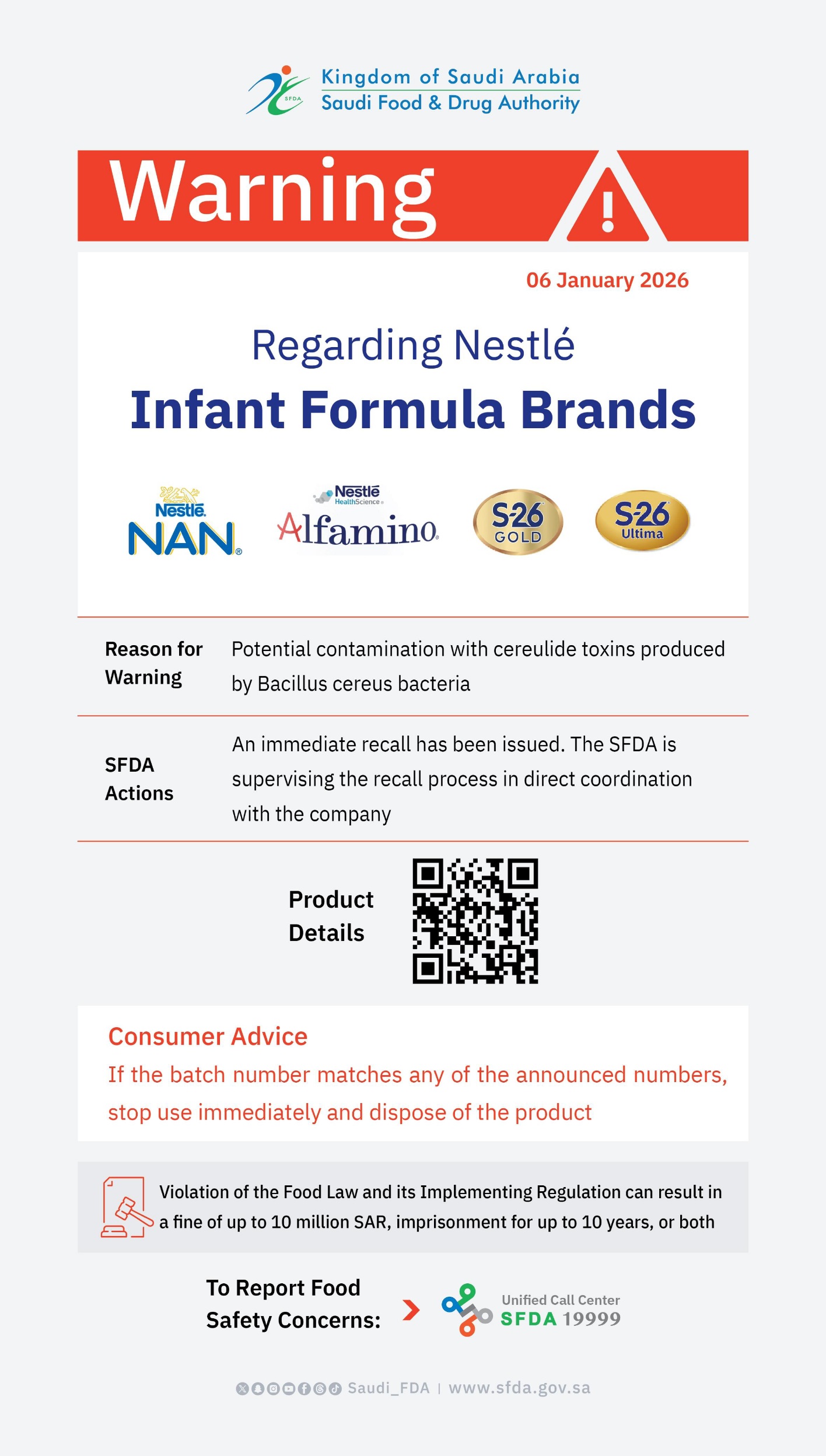
Stronger Heart Failure Risk Warnings for the Diabetes Drugs Rosiglitazone (Avandia) and Pioglitazone (Actos)
2007-08-19
The American Food and Drug Administration (FDA), the U.S. equivalent to the Saudi Food & Drug Authority(SFDA), that the manufacturers of the drugs rosiglitazone (Avandia) and pioglitazone (Actos) will revise the prescribing information for these drugs to include stronger warnings about the risk of congestive heart failure when these drug are used to treat type-2 diabetes.
The new rosiglitazone warning was based on a 52 week clinical and three 26 week studies. In the 52 week trial the risk of worsening heart failure was greatest in the rosiglitazone treated group compared to those receiving an inactive placebo. In the three 26 week studies an increased incidence of edema (fluid retention), heart failure, and other cardio vascular adverse events was seen in those on rosiglitazone and insulin in combination treatment compared to those patients receiving insulin and a placebo.
A 24 week study found that 9.9% of those patients taking pioglitazone were hospitalized for congestive heart failure compared to 4.7% of those taking the older type-2 diabetes drug glyburide (Apo-Glyburide ). In a long term trial involving 5,238 patients, the outcomes were generally worse for those receiving pioglitazone compared to a placebo.
Rosiglitazone was originally approved for sale in The Kingdom in 2001 with Pioglitazone following in December 2003. These drugs are approved for use in conjunction with diet and exercise to improve blood sugar control in adults with type-2 diabetes. The stronger warnings apply to all drugs containing either rosiglitazone or pioglitazone. The table below contains lists of these drugs available in Saudi Arabia.
|
ROSIGLITAZONE CONTAINING DRUGS |
PIOGLITAZONE CONTAINING DRUGS |
|
Avandia |
Actos |
|
Avandamet |
Actions that the Public and Healthcare Professionals Should Follow:
- Patients should be informed that drugs containing rosiglitazone or pioglitazone use alone or in combination with other diabetic drugs can cause fluid retention that may lead to or worsen heart failure.
- Patients should be asked to report to their healthcare professional any signs and symptoms of heart failure, including edema from fluid retention, shortness of breath or trouble breathing, and unusual rapid weight gain and tiredness.
- These drugs should not be use in patients with moderate to severe congestive heart failure.
Reporting Adverse Drug Reactions to the SFDA
The public and health professionals are encouraged to report adverse drug reactions to The National Pharmacovigilance Center on the Internet at the following link:





